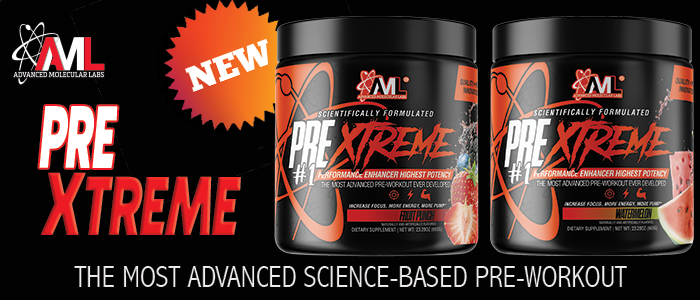


Discover the Benefits of Omega 3 Fats & Reduce Inflammation
For many years, the fats in our diets were vilified. The politics and misguided policies of the '80s resulted in a fat-free fad where all of the palatable fats in our foods were replaced by sugars. We are now realizing the political and economic follies of our ways. There's a crisis of the metabolic syndrome that includes obesity, hyperlipidemia, hypertension and insulin resistance that now drains our medical systems and tax dollars.
Unfortunately, sports nutritionists still believe that carbohydrates are the driving force behind athletic performance. As a result, the essential nutrients that can really boost our performance are treated with benign neglect by the nutrition policymakers and demonized by the media. The reality is that the essential amino acids from protein and the essential fats are critical to our well-being and lean muscle potential.
All macronutrients are not created equal by their calorie content. The branched-chain amino acid leucine is a special "anti-kryptonite" that fights the damaging effects of sugar on our performance, thus making leucine-rich proteins more valuable in fitness.5 This month, I would like to point out that among the fats, all fats are not created equal.
It is clear that the omega-3 fatty acids are especially important in our health. Initial interest in the cardiovascular benefits of omega 3 fish oil was incited by the finding that Eskimos and other populations that consume diets rich in these fatty acids have extraordinarily low incidences of cardiovascular diseases. The benefits of omega 3 fats appear to be on many different physiological processes, including a reduction of inflammation, improved blood flow, positive changes in lipid metabolism and the list goes on.1
Fish Oils for Fat Burning
Over the past 30 years, there's been significant interest in the therapeutic potential of fish oils for a variety of inflammatory conditions such as arthritis, inflammatory bowel diseases and asthma in humans. Fish oil supplements, rich in omega-3 polyunsaturated fatty acids (PUFAs), exert anti-inflammatory and immune-modulatory effects, making them useful as a nutritional combatant to exercise-induced inflammation and immune suppression resulting from intense training. The long-chain omega-3 PUFAs eicosapentaenoic acid (EPA) and docosahexaenoic acid (DHA) found in fish oil appear to have additional anti-inflammatory properties, primarily through their effects on the neutrophil and macrophage constituents of the inflammatory response. These are white blood cells that attack infections and help rebuild tissues.
New data suggests that the types of macrophages in our fat changes as we go from lean to fat. Initially, we have healthy macrophages that produce mediators that reduce inflammation and improve the metabolic function of our adipose tissue. As we get fatter, inflammation builds up and unhealthy or "bad" macrophages come in and perpetuate metabolism-crushing inflammation. Since EPA from fish oil is particularly known to have strong anti-inflammatory effects, it was hypothesized by scientists that supplementation with EPA could help limit the damaging effects of bad fat.2
Scientists fed mice a high-fat, calorie-rich diet with the goal to make them obese and induce inflammation.2 In one group of mice, the researchers replaced 15 percent of the fat with EPA to see if it improved their physiologic function. Amazingly, the EPA-treated mice showed significantly reduced bodyweight and adiposity or "fatness," while decreasing the size of fat cells and reducing the amount of inflammation, compared to the high-fat fed controls. Furthermore, when the mice that became fat were given EPA, they reversed their fat cell size and reduced inflammation. Mechanistically, EPA also improved the fat cell's ability to burn fat and utilize oxygen.
Improved Exercise Performance
Although some of the literature is conflicting between endurance training and strength training, there appears to be a net beneficial effect to using omega-3 fatty acids from fish oils to improve exercise performance.1 It appears that the anti-inflammatory effect reduces muscle damage and delayed-onset muscle soreness, and the improved blood flow brings in more nutrients to grow. You must remember, though, that the omega-3 fatty acids used in these studies are the long-chain fatty acids, especially EPA, derived from fish oil. The omega-3 fatty acids from foods like flaxseed oil have to be elongated by enzymes in your body that are very inefficient at doing so. So suck it up, and slurp down some cod liver oil. Just kidding— take the pills … it's easier.
Because fish oils have such profound effects on our muscle and fat metabolism, a particular area of research interest is the treatment of complications related to aging. Our sensitivity to leucine decreases as we age— and thus our ability to maintain and increase lean muscle becomes more difficult. We must make a concerted effort to eat leucine-rich foods that reduce inflammation. Furthermore, as we age, we experience more tissue breakdown and inflammation in our bodies that we can combat with omega 3 supplements. After age 50, we can lose more than one percent of our lean muscle per year, and lose more than two percent of our strength as a result. This even occurs in the diehard exercisers. The result is falling and hip fractures, which can lead to death in 50 percent of those over 80.
Studies on patients wasting away from cancers and inflammatory problems like rheumatoid arthritis have demonstrated that fish oil supplementation can significantly reduce the decline in muscle mass seen from these conditions.3 Thus, doctors decided to experiment with feeding the elderly Lovaza, a prescribed fish oil supplement containing 1.86 grams of EPA and 1.5 grams of DHA, and observed their muscle mass and function over a six-month period. The amount of fish oil provided was equivalent to the amount one might find in seven to 14 ounces of salmon. Amazingly, this simple intervention significantly increased lean muscle and strength in this population of 70-year-olds. Laboratory data supports that fish oil-derived omega 3 fatty acids cannot only enhance muscle protein synthesis, but can also prevent the catabolic pathways that break muscle down.3
Muscle Growth and Metabolism
Another omega-3 science update in 2015 suggests that omega-3 supplementation may express some of its benefit through modulation of insulin-like growth factor-1 (IGF-1).4 IGF-1 is a protein hormone that travels in the bloodstream, bound to other proteins called IGF-binding proteins (IGFBP). When released by these proteins, the IGF-1 can exert its effects on lean muscle growth and metabolism. IGF-1 is mainly released by the liver in response to growth hormone, but can also be released by other tissues like muscle, to act locally.
Patients with cardiovascular disease have chronically low levels of IGF-1. Statistics suggest that reductions in serum levels of IGF-1 correlate to increased risk of heart failure and mortality from heart disease. Since omega-3 fish oils are capable of limiting mortality in heart disease, scientists explored whether omega-3 supplementation could be having an effect on the IGF-1.4 They performed a randomized, placebo-controlled trial of eight weeks where they supplemented subjects with 720 milligrams of EPA and 480 milligrams of DHA per day. Amazingly, the omega-3 supplementation not only improved the low IGF-1 levels in these patients with cardiovascular disease, but it also increased the bioavailability of the IGF-1 by decreasing levels of the IGFBP-3.
Now, although omega-3 supplementation was able to increase IGF-1 in a chronically lowered state, this data does not suggest that healthy individuals with normal IGF-1 levels will experience a rise in IGF-1 above normal. However, in chronically stressed states like overtraining and lack of sleep, your IGF-1 levels may be too low to build the lean muscle you want. Those who are training with great intensity may also have exceedingly high levels of inflammation in their bodies, which could lead to metabolic dysfunction in both muscle and adipose tissue. This dysfunction could lead to a failure to increase lean muscle and mobilize fat for burning. According to the studies presented in this article, omega-3s could help you to restore normal physiology to this bug-laden system.
I will admit that I am a huge proponent of supplementing your body with the essentials. Whether it's a multivitamin, leucine or a conditionally essential nutrient like creatine, omega 3 supplements help you achieve your training goals. Your body can make creatine— however, if you want to increase lean muscle, you need to get more from your diet. If you aren't eating at least one pound of fish per day, you need to get some extra fish oil through fish oil pills.
LEARN MORE ABOUT OUR MEGA PURE OMEGA-3 PRODUCT
Dr. Victor Prisk is a board certified orthopaedic surgeon and IFBB professional bodybuilder in Pittsburgh, PA. Dr. Prisk is an active member of the GNC Medical Advisory Board and creator of the "G.A.I.N. Plan." He is an NCAA All-American gymnast, champion swing dancer and NPC Welterweight National Champion.
References:
1. Mickleborough T, Omega-3 Polyunsaturated Fatty Acids in Physical Performance Optimization. Int J Sport Nutr Exerc Metab 2013;Feb;23(1):83-96.
2. LeMieux MJ, et al. Eicosapentaenoic acid reduces adipocyte hypertrophy and inflammation in diet-induced obese mice in an adiposity-independent manner. J Nutr 2015; Mar;145(3):411-7.
3. Smith GI, et al. Fish oil-derived n-3 PUFA therapy increases muscle mass and function in healthy older adults. Am J Clin Nutr 2015;May 20. [Epub, ahead of print]
4. Gholamhosseini S, et al. Omega-3 fatty acid differentially modulated serum levels of IGF1 and IGFBP3 in men with CVD: a randomized, double-blind placebo-controlled study. Nutrition 2015;Mar;31(3):480-4.
5. Prisk V. The Leucine Factor Diet, Ulysses Press 2015.




